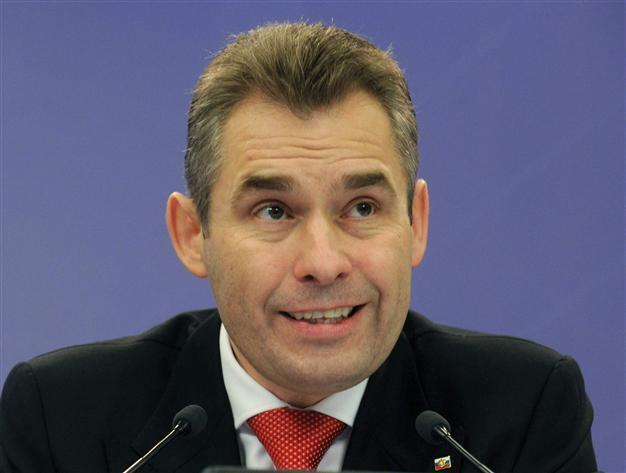Kremlin children's envoy battles plagiarism claims
MOSCOW - Agence France-Presse

A picture taken on February 28, 2013, shows he Kremlin's children's rights envoy Pavel Astakhov attending a press conference in Moscow. AFP photo
Controversial Kremlin children's envoy Pavel Astakhov, a top backer of the ban on US adoptions, on Thursday was at the centre of a plagiarism row as opponents accused him of copying elements of his doctoral thesis.
Opposition journalist Sergei Parkhomenko published a detailed analysis of Astakhov's dissertation on his blog, claiming that elements were plagiarised, while Astakhov responded by calling the claims "pitiful" and saying that his opponents needed to see a psychoanalyst.
The claims centre around a doctoral thesis that Astakhov defended in 2006 at Moscow Interior Ministry University. The prestigious qualification is not required for his job but would usually be the fruit of years of research.
The dissertation "is practically entirely falsified," Parkhomenko alleged on his blog.
Astakhov told Vesti FM radio that the claim was based on "an absolutely unprofessional pseudo inquiry that provokes only pity." "This is material for a psychoanalyst," he added.
Astakhov, a smooth lawyer who had his own television show before being appointed as children's ombudsman, has focused his attention on the plight of Russian children adopted in the United States and backed the controversial ban on all US adoptions of Russian children.
Some commentators believe his role went even further and claim he was one of those behind the adoptions ban plan in the first place. In February, Astakhov accused a Texan woman of murder over the death of her adopted son while US authorities were still investigating the death, later ruled an accident. His ardent opposition to US adoptions prompted accusations of hypocrisy over his own globe-trotting lifestyle.
Top Russian officials often boast doctorates without having taken career breaks to study, raising eyebrows among many, including Prime Minister Dmitry Medvedev, a former university law lecturer.
"It has become the trend for any vaguely big boss to call himself 'doctor of such-and-such science.' When I see this, I do of course have major doubts," Medvedev told students last month, quoted by the RIA Novosti news agency.
President Vladimir Putin has a higher degree in economics and The Sunday Times in 2006 claimed that he had plagiarised sections.
Parkhomenko has published exposes of the dissertations of several officials from the ruling United Russia party, based on research by Internet users and anti-plagiarism software.
"The software shows which texts need to be compared. Then Internet users do the work and find the plagiarised sections. Anyone can do it," Parkhomenko told AFP.
The analysis of Astakhov's dissertation showed that dozens of pages were taken from works written by lawyers based outside Moscow, who were not credited in the bibliography, Parkhomenko said.
